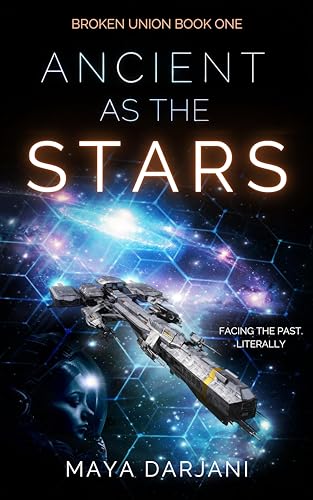How Traditional Publishing Gave Me the Confidence to Self-Pub - Maya Darjani
8 Apr 2024Way back in the 1900s, when I was in high school, I received rejections from two ivy League schools, and to my parents’ surprise, I was ecstatic. The reason? I had my heart set on a different school, and knew it was the right place for me. It was easier to say yes to that school without two prestigious acceptances in my pocket.
(It was still a good school. I'm a Georgetown grad. But it ain't no Princeton).
To my utter shock, the same thing happened to me a few weeks ago. I received an agent rejection from someone I had really wanted to work with, on a manuscript specifically written for the traditional market. My reaction? Relief.
See, I've been hit by the self-publishing bug–that intoxicating, heady feeling of being in utter control of the publishing process. I love choosing my own layout, my release date, and my cover (and in my case, making my own cover, which is literally the best part of the whole thing). And I like the idea of keeping most of my earnings.
Sure, I don't think I'm going to make a splash. For one, I'm a terrible marketer. But here's the thing: I could get my work out there with minimal sales. Or I could never share my work, ever.
I pick the first option.
To note, I've always wanted to be a trad-indie hybrid author. My debut, Ancient as the Stars, has always been slated for the indie market, but I've also been heavily involved in traditional author spaces, vying for one of those increasingly vanishing opportunities to get my work out with a major house.

But I wrote AATS five years ago. And I've written umpteen novels since. Why did I wait so long?
Short answer: lack of confidence. But it was a lack of confidence with a ring of truth. I couldn't be sure my work was up to standard. And if I couldn't be sure, I couldn't sell it.
It took five years, multiple writing groups, tears, rejections, and, notably, two formative mentorship opportunities to make me into the writer I am today. This also means AATS has been rewritten more times than I can count. Is it my best work? Actually, no. The writer I was back then isn't the writer I am now, and no amount of revision can change that base. And as I've evolved, my style has changed to something more upmarket. But am I proud of it and able to share it with the world? Yes.
Trying in vain to capture an agent’s interest was the forge to mold me into a meticulous writer who won't settle for ‘good enough.’ The experience honed my skills better than any writing class could do. And then, we add on my mentorship with Author-Mentor Match and my winning developmental edit with RevPit. They were for different manuscripts, not AATS, yet still, I had intensive one-on-one training on how to developmentally edit my work.
And suddenly, I woke up. I realized I could do this. I realized the major thing holding me back had become moot. Certainly, there are other things in the trad pub world that solidified my decision–including small press drama, the shrinking editor pool, the amount of marketing even a trad author has to do, and the difficulty of getting into bookstores unless you're a big name. But I also knew I could share my work with pride, and that was all the push I needed.
As for the relief I felt with my rejection? That book would be great for the traditional market. But–and this is key–now that I am strutting through this pub process with a huge smile on my face, I find myself wondering: why not? Why not publish that one too? (If I do end up pubbing it, look for it next year: A Stellar Spy, an upmarket science fantasy spy novel, basically if Le Carre and “The Americans” had a genre-confused speculative baby.)
Thank you, traditional trenches, for kicking my butt so I can emerge stronger. Now, get out of my way. I have books to write.
If you want to become an ARC reader of AATS, have this handy form. You can also pre-order it on the Zon.
About Maya Darjani

Bio: Maya Darjani is a former intelligence officer who writes genre-bending fiction about divided loyalties, the false promises of patriotism, and badass women. Look for her debut, Ancient as the Stars, a snarky space opera time-travel adventure, in June. Her second book, The Star-Crossed Empire, is a romantic space opera and will be released this November 2024. Both are available for preorder.
